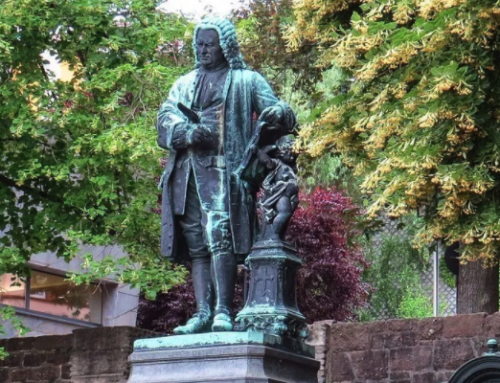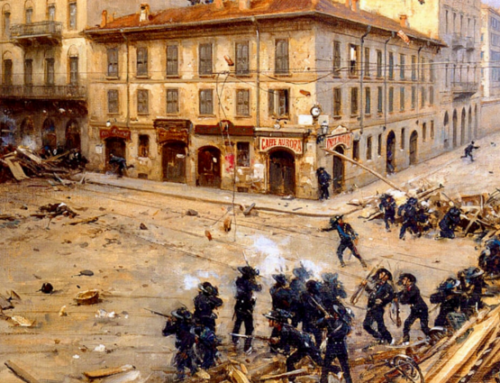I tried to explain to the police officer that I hadn’t said anything to him, but the uproar around us was immense, but I could see the fear and the fury in his eyes and as his club came within an inch of my face, I sensibly turned silent…
Like many others, I have had my share of bad run-ins with the police over the years; I have also had some remarkably good encounters. I confess that every once in a while, even as a much older man now, I run into a police officer I find overbearing and too smitten with his own power, but far more often I have an overwhelming impulse to just thank them for the increasingly difficult job they shoulder. Part of the problem as a younger man was the fact that my hair was long and scraggly (now it is just scraggly) and I always had a bad attitude toward authority. Yet my appreciation for the police began long ago during two encounters back in 1970 and 1971.
I begin with my second favorite police encounter. It probably is not as instructive as the first, but it is funnier. It was the summer of 1970. I had just graduated from high school and before heading off to university I decided to hitch-hike out West with a friend of mine also named Joe. Somewhere in Indiana, a police car stopped us along I-70, informing us politely that hitch-hiking on Interstates was illegal. Feigning surprise, I assured the two policemen that we would find a different road to hitch on. So, as soon as the police left, my friend Joe picked up his backpack to leave. I looked at him like he had gone mad and asked in bewilderment: “What are you doing?” He sensibly replied that we needed to get off the Interstate. I just laughed and said that now that the police were gone, we would be foolish to leave and that we should just keep hitching. Reluctantly he agreed. But an hour went by with no ride and sure enough, the same police car with the same policemen stopped again.
This time the police were not so friendly. “What the hell are you still doing here? Didn’t you say you would leave?” I shrugged my shoulders and said, “Yes, but there really isn’t anywhere to go” as I look forlornly at the empty fields surrounding us. The police officer shot back: “Sure there is. You can go to jail. Right now!” And with that he grabbed me and slammed me against the police car, starting to frisk me for weapons and drugs. Well, I started to giggle, and then I started to laugh uproariously. This really infuriated the police officer and he slammed me against the car even harder and said something like: “So you think this is funny? You think this is a joke?!” But I couldn’t stop laughing, so he turned me around and grabbed my shirt with sheer fury in his eyes. I caught my breath and apologized: “Officer, I’m sorry. I really am sorry. I’m not laughing at you guys. I don’t think this is a joke. But…” “But what, goddammit?” he asked angrily. “Well, officer, please don’t touch my ribs. I’m really ticklish.”
He looked at me as if I were a joke. I felt embarrassed. Very embarrassed. But it turned out he felt even more embarrassed for having gotten angry and defensive. He looked at his partner and then said to us: “Get in the damn car,” and then he gently ushered Joe and me into the back seat. Joe was terrified, as I recall. He had never gotten arrested before (I had only been arrested once before) and getting arrested for the first time I suppose is kind of like having sex for the first time: It may be exhilarating, but also confusing and scary, and you aren’t quite sure how to react or what to do. Anyway, we started talking to the police and had a good talk about their work and their families and going to university and other things, like Vietnam, which not surprisingly we didn’t agree on.
Before we knew it, an hour had passed. We had traveled at least fifty or so miles. Then suddenly the police stopped the car and the same officer who had frisked me told us to get out. A little bit confused since no jail or police station was in sight, I momentarily wondered if they were going to just beat us instead of jailing us. But they both just smiled and one of them said, “Walk that way down the road about fifty yards.” Confused, I asked, “Why?” To which the police officer replied: “Fifty yards up the road is Illinois. You are no longer our problem.”
My very favorite encounter, however, and the one that is still seared in my memory occurred a year later in September 1971. As I wrote recently in another article, the Attica massacre had taken place a few days earlier and I traveled up to NYC to join a demonstration. The atmosphere was tense and the demonstrators were the usual mix of thrill-seekers, idealists, and agitators. The demonstrators grew in number and their restlessness also increased as the minutes ticked by. A friend and I engaged some of the police in pleasant conversation, with several of them reassuring us that we shouldn’t worry; that they had orders to be careful and not harm any of the demonstrators. But every twenty minutes or so, the line of police at the barricades would rotate—the government didn’t want personal contact between demonstrators and the police to hinder the police from acting as ordered in the event they were called upon to use violence.
At the same time, some self-proclaimed Maoists in the crowd started to chant, “Kill the Pigs, Kill the Pigs” and called upon the demonstrators to charge the barricade. Some demonstrators took up the call and started to push up against the barricades. I was appalled. Even during my radicalized youth, I could not really comprehend any moral difference between racial epithets and calling someone in blue a pig. Both were terms used to dehumanize human beings different from the rest. I turned back toward the barricade where a new police officer now faced me. Before I could say another word, he brandished his billy club and threatened me, screaming “I’ll break your f—ing face if you say one more goddamn word!” Some of the demonstrators were shaking the barricades hard now and screaming even more horrific things at the police. I tried to explain to the police officer that I hadn’t said anything to him, but the uproar around us was immense, but I could see the fear and the fury in his eyes and as his club came within an inch of my face, I sensibly turned silent.
Eventually, things calmed down and the demonstration ended peacefully. I had been terrified at the prospect of having my face beaten in by the policeman, but I was even more disgusted with some of the demonstrators for risking the lives of the rest of us. Not for the first time, I would find myself angrier with my “comrades” than with my “enemies.” And then, suddenly, the entire absurdity of the situation was brought home to me and I had my epiphany because if I have one really dangerous trait it is that I am oblivious to my surroundings. I had been pondering the situation so intensely that I had wandered into the middle of one of New York’s massive and busy boulevards, with cars whizzing by me and me stuck hopelessly in the middle of them all. None of the cars were even slowing down—this was New York City after all! And then just as I was certain I was going to end up in the hospital or the cemetery, the cavalry arrived: A couple of police—perhaps the very same police officer who just a few minutes earlier was threatening to bash my face in—were at my side, stopping the long lines of traffic to ensure that I could safely make it to the other side. I tried thanking them for helping me, but one police officer just shook his head, wagged his finger like an old schoolmarm, and gently scolded me for not being more careful.
I’m much older now, but I still cannot focus when I am out for a walk. But I cross streets with great ease and confidence knowing that if I am ever stuck again with cars rushing toward me, somehow a police officer will also be rushing toward me, saving me once again from my own foolishness.
Books on the topic of this essay may be found in The Imaginative Conservative Bookstore. The Imaginative Conservative applies the principle of appreciation to the discussion of culture and politics—we approach dialogue with magnanimity rather than with mere civility. Will you help us remain a refreshing oasis in the increasingly contentious arena of modern discourse? Please consider donating now.









Leave A Comment